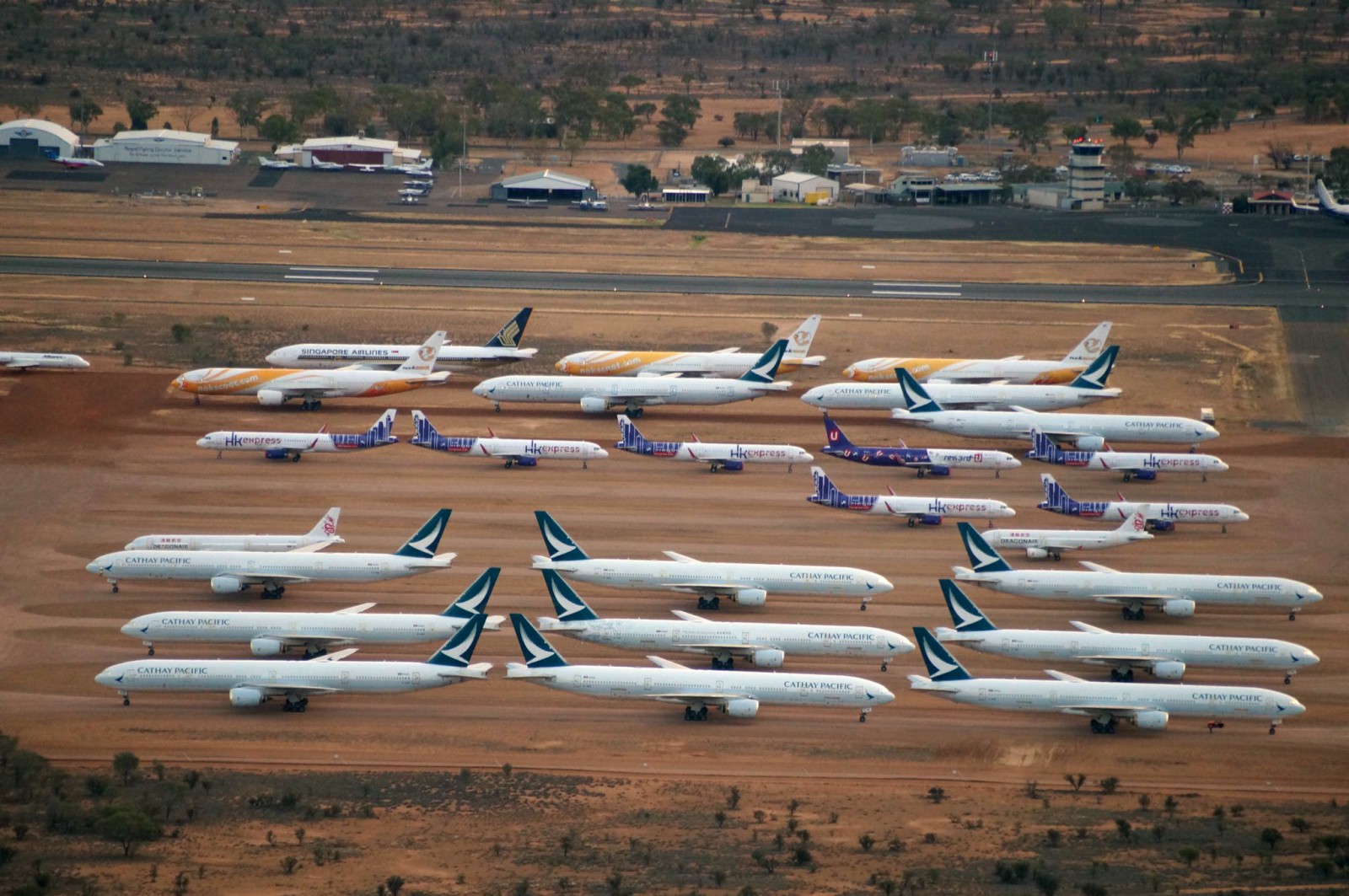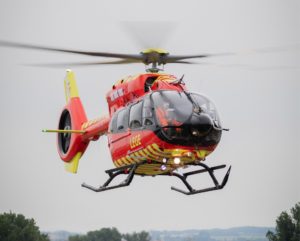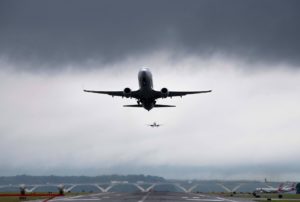
Storage owners seek more space for grounded planes in Australia
CANBERRA: Owners of an aircraft storage facility in Central Australia have been seeking more space as the facility is fully booked due to the Covid-19 pandemic.
Many carriers haven’t had enough passengers to justify flying during the pandemic, and have opted to store their planes, the BBC reported.
Asia Pacific Airline Storage is storing 94 planes at Alice Springs, and will store more in Southeast Queensland.
Analysts say it’s a sign of how difficult conditions have become for airlines.
Singapore Airlines and Cathay Pacific as well as their subsidiaries are storing planes in Alice Springs, as are Fiji Air and Cebu Pacific.
Asia Pacific Airline Storage (APAS) has an additional sixteen slots on site, but they are already booked with existing customers.
The site has become a local landmark in the remote town of about 25,000 people.
The company has plans to expand the facility from its current 110 slots to accommodate 160-200 aircraft.
Until the expansion is ready, APAS needs to find extra space elsewhere.
“To manage some additional storage requirements we’ve started to store some aircraft at Wellcamp in Toowoomba,” Tom Vincent, the company’s Managing Director, told the BBC.
At the moment, there are only two planes at the new facility in Southeast Queensland, but more are due to arrive this week.
Desert conditions are widely regarded by manufacturers and airlines as preferable for storing planes because it is easier to protect against corrosion in dry weather.
While they are in storage, the planes have to undergo a rigorous maintenance schedule.
“People have this misconception that you just park an aircraft and it sits there until you want to activate it again,” said Vincent.
In fact, APAS now has 70 employees ensuring the planes are properly looked after until the airlines need them again.
Vincent said he always expected to expand the facility, but the pandemic has dramatically increased demand.
And while there has been a very slow trickle of planes returning to service, the vast majority have been entering rather than leaving storage.
The facility is not an airline “boneyard” where old planes are stripped for reusable parts, but Vincent suggested that might become part of the business if the industry continues to face headwinds.
One industry analyst said the facility’s expansion is a clear indication of the difficulty airlines are facing during the Covid-19 pandemic.
Flightglobal’s Asia Editor Greg Waldron said times are tough for Singapore Airlines and Hong Kong-based Cathay Pacific — which are both using the facility.
Neither airline has domestic flights, which will likely be the first to reopen, he said.
“If you’re something like Cathay Pacific, where you don’t have that domestic market, you’re in an extremely difficult situation,” he said.
However, he said the air freight business remains strong, and will help many airlines stay afloat.
The International Air Transport Association (IATA) has just downgraded its 2020 traffic forecasts.
The association now says it expects traffic to be 66 per cent below the level it was in 2019.
The IATA estimates that it will be at least 2024 before air traffic reaches pre-pandemic levels.
“I guess there’s not a clear pathway for a return for normality. There’s a lot of industry views out there that a return to pre-Covid levels is going to take many years,” Vincent said.
Source: IANS

